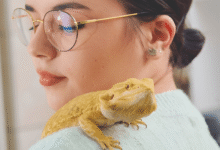
Scheduling Your Pet’s First Vet Visit What You Need to Know
Scheduling your pet's first vet visit Learn what to expect from exams to vaccines for a healthy start Essential guide for new pet owners.
Scheduling your pet’s first vet visit is one of the most important steps you can take as a new pet owner. Whether you’ve welcomed a playful puppy, a curious kitten, or an older rescue into your home, this initial check-up sets the foundation for their lifelong health. A veterinarian will assess your pet’s overall well-being, administer necessary vaccinations, and provide essential guidance on nutrition, behavior, and preventive care. By prioritizing this early visit, you’re not only protecting your pet from potential health risks but also ensuring they get the best possible start in their new life with you.
Preparing for your pet’s first vet visit can feel overwhelming, especially if you’re unsure what to expect. From choosing the right clinic to gathering medical records and calming a nervous pet, there’s a lot to consider. This guide will walk you through everything you need to know from when to schedule the appointment to what happens during the exam so you can approach the visit with First Vet Visit. By taking these proactive steps, you’ll help your furry friend stay happy, healthy, and thriving for years to come.
Scheduling Your Pet’s First Vet Visit What You Need to Know
Establishes Lifelong Health Foundations
The first veterinary visit is critical for setting up your pet’s long-term wellness plan. For young animals like puppies and kittens, this appointment ensures they receive essential vaccinations to protect against deadly diseases (such as distemper, parvovirus, and rabies). The vet will also administer deworming treatments and flea prevention, as young pets are highly susceptible to parasites. Additionally, the veterinarian will screen for congenital conditions or hidden illnesses that might not show obvious symptoms yet. Early detection of health problems can prevent severe complications and costly treatments later in life.
Creates a Health Baseline for Adult and Senior Pets
Even if your newly adopted adult or senior pet seems perfectly healthy, a first vet visit is vital for establishing their medical baseline. Many age-related conditions such as dental disease, arthritis, kidney issues, or hormonal imbalances develop gradually and may not be noticeable at home. A thorough physical exam, bloodwork, and diagnostic tests can uncover these hidden problems. The vet will also discuss important preventive measures, including spaying/neutering (if not already done), microchipping for safety, and dietary adjustments tailored to your pet’s breed, age, and health status. This initial assessment ensures your pet gets the right care from the start, improving their quality of life as they age.
When to Schedule the First Vet Visit
Ideally, you should schedule your pet’s first vet visit within the first week of bringing them home. For puppies and kittens, most veterinarians recommend an initial check-up at around 6-8 weeks of age. This timing coincides with their first round of vaccinations. If you’ve adopted an older pet, booking an appointment soon after adoption ensures they are up-to-date on medical care. Delaying the first visit can put your pet at risk, especially if they were exposed to other animals before adoption. Shelters and breeders often provide basic care, but a full veterinary examination is necessary to confirm their health First Vet Visit.
Choosing the Right Veterinarian
Selecting a veterinarian is a decision that will impact your pet’s health for years to come. Start by researching clinics in your area, reading reviews, and asking for recommendations from fellow pet owners. Look for a vet who is experienced with your pet’s species and breed, as some animals have specific heart rate. Consider factors such as clinic hours, emergency First Vet Visit, and the overall First Vet Visit. A pet-friendly environment with compassionate staff can make visits less stressful. If possible, schedule a meet-and-greet before the first official appointment to see if the clinic is a good fit.
Preparing for the Appointment
To make the first vet visit as smooth as possible, gather all necessary documents beforehand. This includes adoption papers, previous medical records, and any information provided by the breeder or shelter. If your pet is on a specific diet or medication, bring those details as well. Transporting your pet safely is another key consideration. Use a secure carrier for small animals or a leash and harness for dogs. Familiarize your pet with the carrier beforehand to reduce anxiety. Bringing treats, a favorite toy, or a blanket with familiar scents can also help keep them calm.
What to Expect During the Visit
Comprehensive Health Evaluation
The veterinarian will conduct a full physical exam to assess your pet’s overall health. This includes checking vital signs (weight, temperature, heart rate, and breathing), as well as examining the eyes, ears, mouth, skin, and coat for abnormalities. Based on your pet’s age and medical history, the vet may recommend essential vaccinations (such as rabies, distemper, or feline leukemia), perform a fecal test to detect parasites, and prescribe preventive treatments for fleas, ticks, and heartworms. This thorough evaluation ensures early detection of potential health issues and establishes a preventive care plan.
Personalized Care Guidance
Beyond the physical exam, your vet will provide tailored advice on nutrition, behavior, and long-term wellness. They’ll recommend an age-appropriate diet, discuss proper feeding portions, and address any dietary concerns. For puppies and kittens, the vet will offer tips on socialization, house training, and behavioral development. This is also your opportunity to ask questions about growth expectations, exercise needs, and any specific concerns you have about your pet’s health. By the end of the visit, you’ll leave with a clear care plan to help your pet thrive.
After the First Visit Follow-Up Care
Depending on your pet’s needs, the vet may schedule follow-up visits for additional vaccinations or health checks. Keep track of upcoming appointments and set reminders for booster shots, flea treatments, and annual exams. Establishing a routine early on helps maintain your pet’s well-being. At home, monitor your pet for any changes in behavior, appetite, or energy levels. If something seems off, don’t hesitate to contact your vet. Early intervention can prevent minor issues from becoming serious problems.
Read More: Understanding Common Household Toxins and Their Effects on Pets
Conclusion
Scheduling your pet’s first vet visit is a crucial step in ensuring a long, healthy life for your new companion. This initial appointment allows your veterinarian to detect any potential health issues early, establish a vaccination schedule, and provide personalized care recommendations tailored to your pet’s needs. By being proactive about this first check-up, you’re not just fulfilling a responsibility you’re giving your pet the best possible foundation for their future wellbeing.
As you prepare for your pet’s first vet visit, remember that this is the beginning of an ongoing partnership with your veterinarian. Regular check-ups, preventive care, and open communication with your vet will help keep your pet in optimal health through every life stage. By making veterinary care a priority from day one, you’re demonstrating the love and commitment that makes you a wonderful pet owner and ensuring many happy, healthy years ahead with your furry family member.
FAQs
How soon should I take my new pet to the vet?
Ideally, within the first week of bringing them home, especially for puppies and kittens who need early vaccinations.
What should I bring to the first vet visit?
Bring any medical records, adoption papers, and information about their diet or medications.
How much does the first vet visit cost?
Costs vary but typically range from $50-$200, depending on vaccinations and tests needed.
What if my pet is scared of the vet?
Use a secure carrier, bring treats, and stay calm to help reduce their anxiety.
How often should my pet see the vet after the first visit?
Puppies and kittens need frequent visits for vaccines, while adult pets should have annual check-ups.







